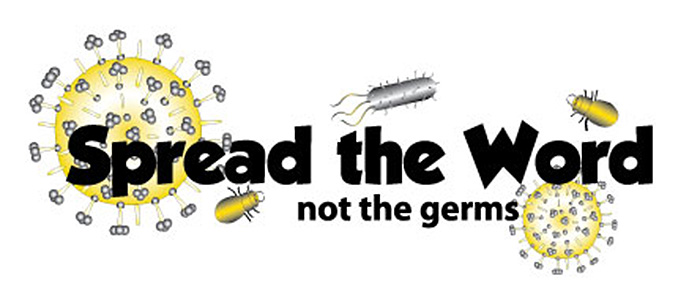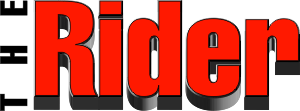Calculating Biosecurity Risks & Creating Action Plans Spread the Word
Guelph, ON Mar. 30, 2020 - Equine Guelph has opened a FREE offering of their online Sickness Prevention in Horses course ($85 value - free with coupon code) in response to the Covid-19 pandemic.
TheHorsePortal.ca course is based on the Canadian standard for equine biosecurity. While many are at home for the next few weeks, this is an ideal time to learn online and develop your own action plan and backup arrangements.
Maintaining health is everyone’s responsibility. Biosecurity is a word and practice not well understood by an unsettling number of public riding facilities. How many people wipe down the chains and snaps on cross-ties with disinfectant because they understand this is one of many practices that can reduce the risk of disease spread? This is just one of the simple take-aways from Equine Guelph’s free Biosecurity Calculator online healthcare tool.
 Other agricultural industries such as poultry and dairy follow strict protocols to ensure the health of their animals. Every person entering a facility has to log in and out. They follow the rules of National Codes of Practice and Biosecurity. The horse industry also has a National Code of Practice for the Care and Handling of Equines and a National Farm and Facility Level Biosecurity standard for the Equine Sector.
Other agricultural industries such as poultry and dairy follow strict protocols to ensure the health of their animals. Every person entering a facility has to log in and out. They follow the rules of National Codes of Practice and Biosecurity. The horse industry also has a National Code of Practice for the Care and Handling of Equines and a National Farm and Facility Level Biosecurity standard for the Equine Sector.
Those who have read and follow those guidelines may well lament over the number of facilities that immediately introduce an unknown horse into it’s herd with complete optimism that nothing will go wrong. In this time of heightened alert, all reliable sources of education to prevent sickness are our salvation. We all can and must take steps to safeguard health of both humans and animals.
Just what do you say to someone who comes back from their boarding barn search with the complaint, “Oh, it’s a lovely facility but they want to quarantine my horse for the first month - that will be inconvenient and I want my horse to have group turn-out.”? The COVID-19 outbreak has made us all keenly aware of the importance of physical distancing as a crucial way to prevent the spread of disease. Asymptomatic (no evidence of symptoms) does not equate to no health risk to others.
Our minds should instantly become more at ease when a facility has a quarantine protocol, wants to see vaccination records or even wants to see results from a strangles swab. Horses are social, herd animals and being with their herd mates is an important component of their welfare but there is also an important balance to strike in safeguarding herd health.
If a horse enters a stable (perhaps travelling from a ‘hot spot’ – e.g. auction or yearling sale to name but two) asymptomatic upon arrival but they happen to be carrying a transmittable disease – what then? They can pass the disease on to the entire herd. That is inconvenient, costly and in the worst-case scenarios deadly. It is also a preventable welfare issue for the horses that suffer from the disease.
In this unprecedented time of social distancing, people are becoming acutely aware of the importance of carefully monitoring health and following quarantine protocols. Monitoring for fever, cough and signs of sickness is daily news at the moment.
In a recent article run by the Toronto Star regarding the COVID-19 pandemic, Amy Greer, Canada research chair in population disease modelling at the University of Guelph was quoted “It’s possible that Ontario will never experience the level of community transmission that the model estimates — just as it’s also possible that the province is on the cusp of a wider outbreak. From a public health perspective, that’s always the challenge,” said Greer, “If we do a really good job, people say, ‘Well you were overreacting, because nothing happened.’”
Well-run equestrian facilities and well informed horse owners closely monitor horses that have recently traveled. Temperatures are taken daily along with a thorough horse health check. Feed buckets, water buckets, tack, stall-cleaning equipment are not shared. Hoses are never allowed to touch down into the buckets when they are refilled. New arrivals may be able to see but not touch other horses. Ideally, a separate quarantine barn is utilized.
For existing residents, such as horses returning home from being on the show circuit (higher risk location) best practices are to turn them out together but separate from the herd that does not travel.
Dr. Scott Weese, infection control expert at the University of Guelph has been very busy with his Worms and Germs blog as of late, providing advice for the FAQ’s coming in from animal owners. Weese was recently interviewed by TVO What we know — and don’t know — about how COVID-19 affects animals. Weese is also featured in many resources in Equine Guelph’s biosecurity resources.
Maintaining health is the responsibility of everyone. Arm yourself with scientifically proven information. Ensure you have a written plan in case you get sick or injured to ensure ongoing care for your horses.
Stay safe everyone during this COVID-19 pandemic. When it is all over may we all emerge strong, informed and vigilant in biosecurity best practices.
Equine Guelph’s Resources for Equine Health & Biosecurity:
Equine Guelph’s Biosecurity Calculator - free online healthcare tool
Equine Guelph’s Sickness Prevention online short course - Special FREE offering!
Equine Guelph’s Health & Disease 12-week online course
Equine Guelph HEALTHflash Alert – COVID-19 - Caring for your horse during a pandemic


